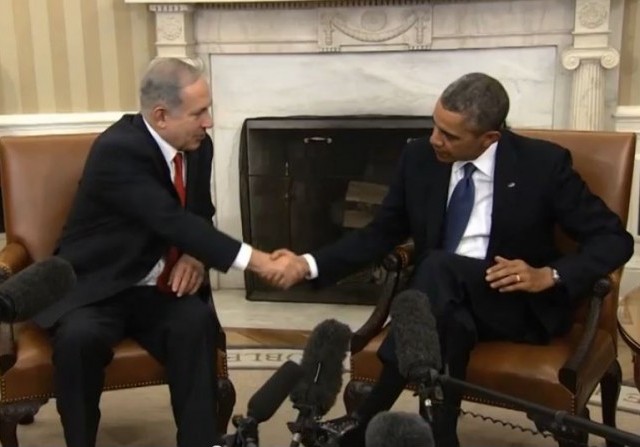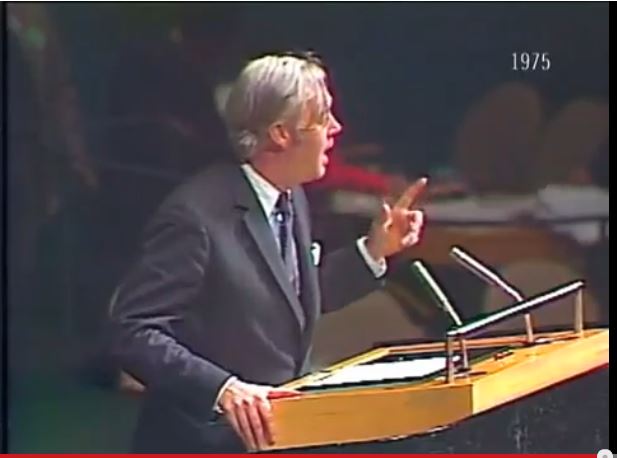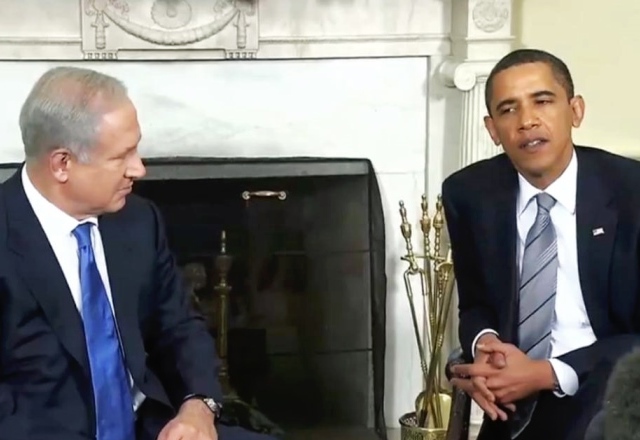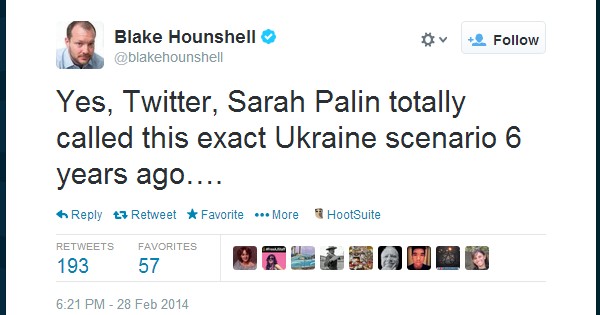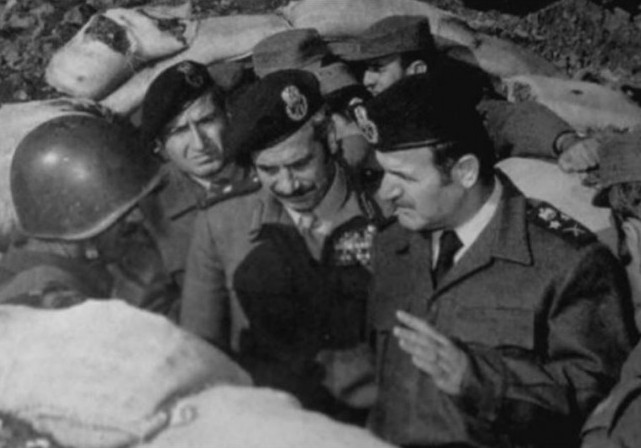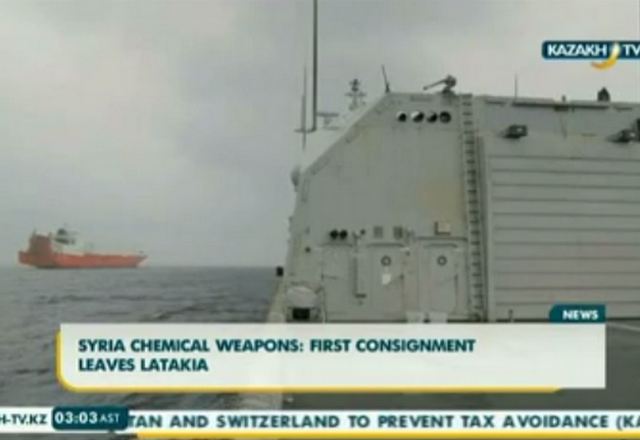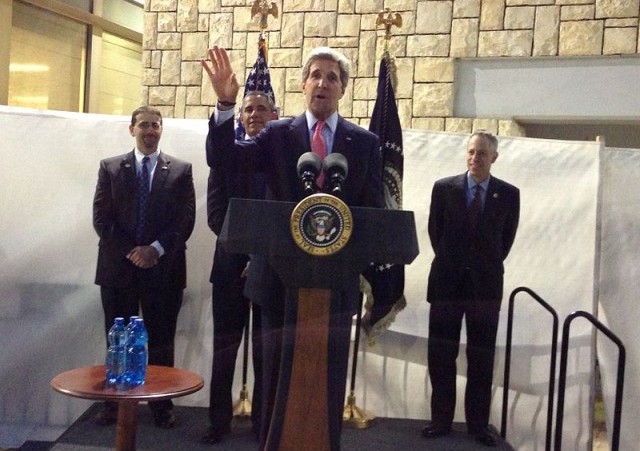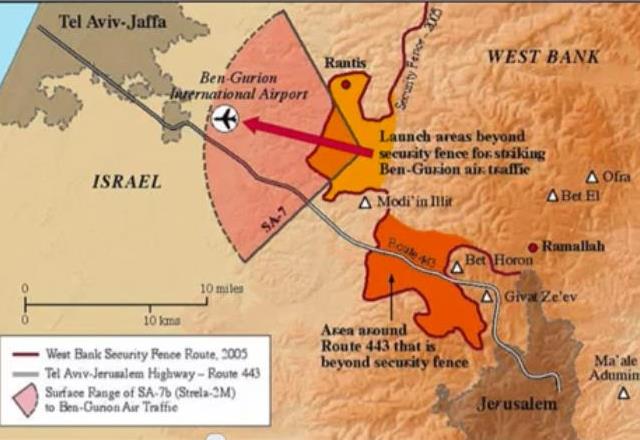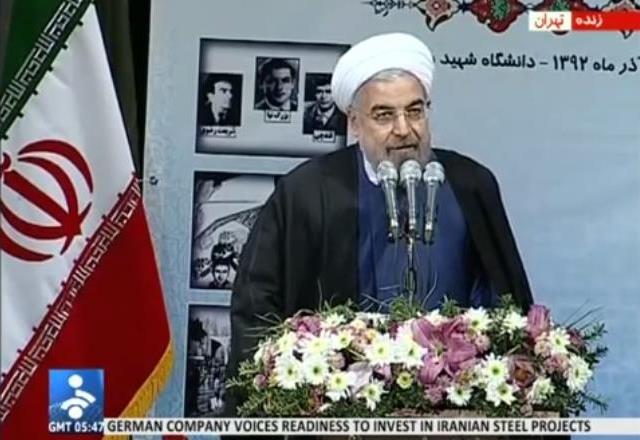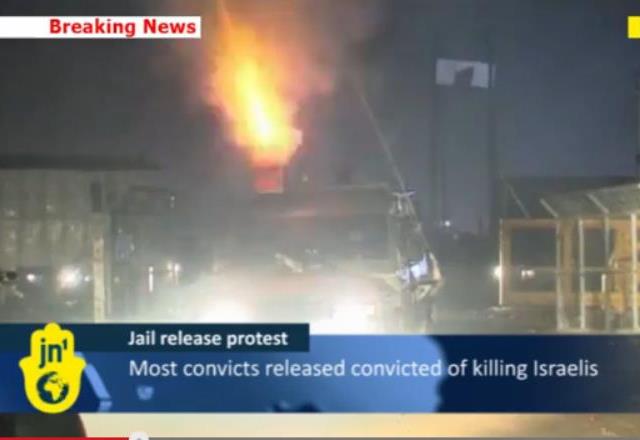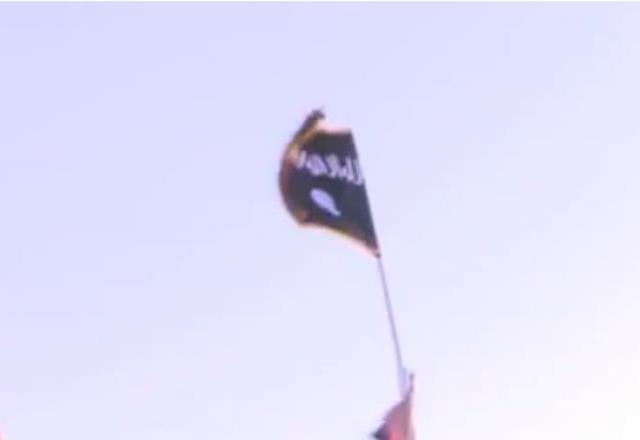Obama meets with Israeli Prime Minister Benjamin Netanyahu
on March 03, 2014
31 Comments
President Obama has been meeting with Israeli Prime Minister Benjamin Netanyahu today.
From the Washington Post:
Seeking to salvage an elusive Middle East peace plan, President Barack Obama pressed Israeli Prime Minister Benjamin Netanyahu Monday to make the “tough decisions” needed to move forward on talks with the Palestinians.But facing a U.S.-imposed April deadline, the Israeli leader declared pessimistically that, “Israel has been doing its part and, I regret to say, the Palestinians have not.” Obama and Netanyahu spoke before an Oval Office meeting on a snowy Monday in Washington. The meeting marked a more direct foray by Obama into the peace negotiations, which he has so far largely ceded to Secretary of State John Kerry.Barak Ravid, a correspondent with Haaretz Newspaper, posted tweets from the event - a handful are included below. (Video added -- Transcript here)
Obama: the timeframe for talks is coming to its end and tough decision will have to be made
— Barak Ravid (@BarakRavid) March 3, 2014
